The Best Ayurvedic Herbs for Reducing Piles Symptoms
Being affected by piles (hemorrhoids) can make things very uncomfortable. The symptoms such as pain, itching, swelling and occasional bleeding, may interfere with your daily activities. Despite the option of steroid creams or surgery, many people are choosing Ayurvedic treatments for piles because they feel safer and more natural.
In this guide, we will look at the top Ayurvedic herbs for hemorrhoids and explain how they can ease swelling, inflammation and pain in a natural and lasting way.
What Are Piles and How Do They Affect the Body?
In medicine, piles or hemorrhoids, are when veins around the anus swell and can occur inside or outside the body. External piles cause greater discomfort than internal ones because they bulge outside the rectum which leads to itching, bleeding and sometimes severe pain when moving the bowels.
Reasons people get piles are chronic constipation, frequently straining, excessive sitting and pregnancy. When the veins in the anus or rectum swell, it results in redness, irritation and pain in the area. This is when using natural ways for piles relief, especially Ayurvedic herbs for hemorrhoids, proves to be very effective.
Why Choose Ayurvedic Treatment for Piles?
Ayurveda believes that piles occur because there is an imbalance in the body’s Vata, Pitta and Kapha doshas. Most cases of piles happen when Vata (movement) and Pitta (heat and inflammation) are not in balance. The main goal of Ayurveda for hemorrhoids is to restore balance, support digestion and lower the inflammation responsible for hemorrhoids.
This treatment is valuable because it works on the main reasons for piles such as problems with digestion and habits, not just the symptoms. Ayurvedic herbs are safe to use, gentle and generally don’t cause the side effects that come with regular medical treatments.
Top Ayurvedic Herbs for Piles Relief
1. Triphala: The Ultimate Detoxifier
Triphala which is made from Haritaki, Bibhitaki and Amalaki fruits, is often used to treat piles in Ayurveda. It cleans out the body, helps with constipation (a main cause of piles) and supports the healthy functioning of the bowels.
- How it helps: Because of its anti-inflammatory effects, triphala reduces swelling and helps with digestion which eases the pressure on rectal veins.
- How to use: Try taking some Triphala powder mixed with warm water before bed to improve digestion and not experience constipation.
2. Turmeric: Pure Anti-Inflammatory Action
In Ayurveda, turmeric or curcumin, receives much praise for its strong anti-inflammatory and antioxidant effects. It helps to reduce the swelling and pain of piles.
- How it helps: Turmeric has anti-inflammatory properties and aids in the healing of damaged tissues, a typical issue with piles.
- How to use: If you have piles on the outside, apply turmeric mixed with coconut oil or aloe vera to get comfort or consume turmeric in your meals.
3. Neem: Natural Antiseptic and Anti-Itch Herb
Neem has antiseptic, anti-inflammatory and anti-itch qualities which is why it is used for treating piles. It guards against infection and aids the healing process.
- How it helps: Neem helps soothe itching, burning and irritation, giving significant relief, mainly when hemorrhoids are inflamed or infected.
- How to use: Use neem oil or neem paste on the rash or use neem products made for topical usage.
4. Aloe Vera: Cooling and Healing Properties
Aloe vera is often used as a herb to soothe the symptoms of piles. The soothing effects make it suitable for external hemorrhoids.
- How it helps: Aloe vera can ease inflammation, itching and pain felt with external piles.
- How to use: Rub fresh aloe vera gel on the hemorrhoids or apply it as a cream.
5. Haritaki: Digestive Aid and Piles Reducer
Haritaki which is found in Triphala, has been used in Ayurvedic medicine for many years to help with detoxification and digestion. It helps get rid of constipation and makes bowel movements regular which can prevent piles.
- How it helps: It improves the digestive system, decreases the chance of constipation and encourages the easy passing of stools which avoids more strain on the rectal veins.
- How to use: Have some Haritaki powder mixed into warm water to help your digestion.
6. Guggul: Reduces Swelling and Supports Circulation
Guggul is commonly used in Ayurveda for its effects on swelling and circulation which make it helpful for piles.
- How it helps: Guggul helps reduce the size of swollen veins and improves blood circulation which eases the process of healing hemorrhoids.
- How to use: Take your Guggul as prescribed by an expert in Ayurvedic medicine.
7. Witch Hazel: Astringent for Bleeding Piles
Witch hazel is not typically from Ayurveda, yet it is a popular astringent in Ayurvedic medicine for external hemorrhoids.
- How it helps: Witch hazel helps stop bleeding, lessens swelling and eases pain in bleeding hemorrhoids.
- How to use: Soak a cotton ball in witch hazel and apply it to the hemorrhoids gently.
How to Apply Ayurvedic Herbs for Piles Relief
- Topical Applications: Apply oils like neem oil, turmeric paste, or aloe vera gel to external piles to relieve pain and swelling.
- Herbal Supplements: Take Triphala or Haritaki to aid digestion and reduce constipation, which is a major cause of piles.
- Sitz Baths: Soak the affected area in warm water with added Triphala or neem leaves for enhanced healing.
Other Natural Remedies to Support Healing
- Increase Fiber and Water: A diet full of fiber and keeping yourself well hydrated help prevent straining the piles.
- Regular Yoga and Light Exercise: Gentle exercises and especially yoga, can help increase blood flow and prevent piles from getting worse.
- Herbal Teas: Using teas made with Triphala or Haritaki may aid digestion and stop constipation.
Complementary Lifestyle Remedies
- Take sitz baths with neem or Triphala water.
- Incorporate a fiber-rich diet: Include fruits, vegetables, flaxseeds, and soaked raisins.
- Stay hydrated with warm water and herbal teas.
- Avoid spicy, fried, and processed foods that irritate the digestive system.
- Engage in gentle yoga or walking to keep your digestion active and healthy.
What Results Can You Expect?
Routine use of Ayurvedic oils and pastes along with good lifestyle practices should result in:
- Day 1–3: Reduction in itching and pain, especially after applying Jatyadi or neem oil.
- Day 4–7: Reduced swelling and improved comfort during bowel movements.
- Week 2–3: Noticeable shrinkage of external piles, and bleeding may stop.
- Week 4+: Long-term healing begins with fewer flare-ups and restored tissue strength.
Important: Chronic cases often last longer (6–8 weeks) and might need extra treatments, including Panchakarma or Ksharasutra therapy, under the care of an Ayurvedic doctor.
Final Thoughts
Relief from piles can be found naturally and safely by using Ayurvedic herbs. Triphala, turmeric, neem and aloe vera aid in reducing inflammation, calming the itch and improving digestion which helps with both the symptoms and main problems of piles. To get lasting benefits, practice these remedies daily, support them with a healthy diet and follow a good lifestyle.
For Ayurveda to help, you should keep it up and follow other healthy routines. If you still have symptoms or they get worse, get advice from an Ayurvedic practitioner who can create a suitable treatment plan for you.
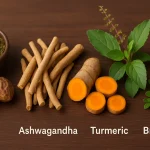


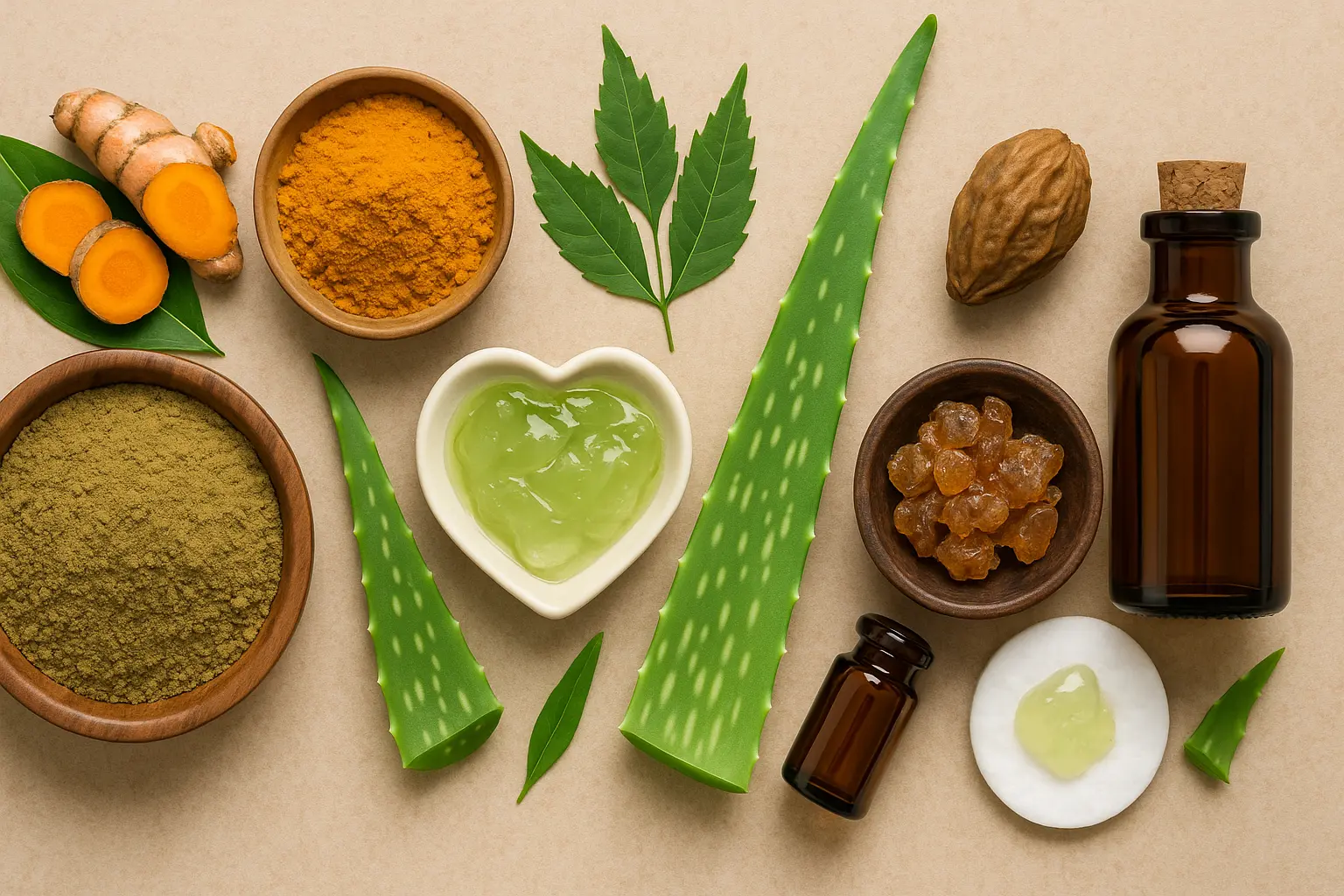


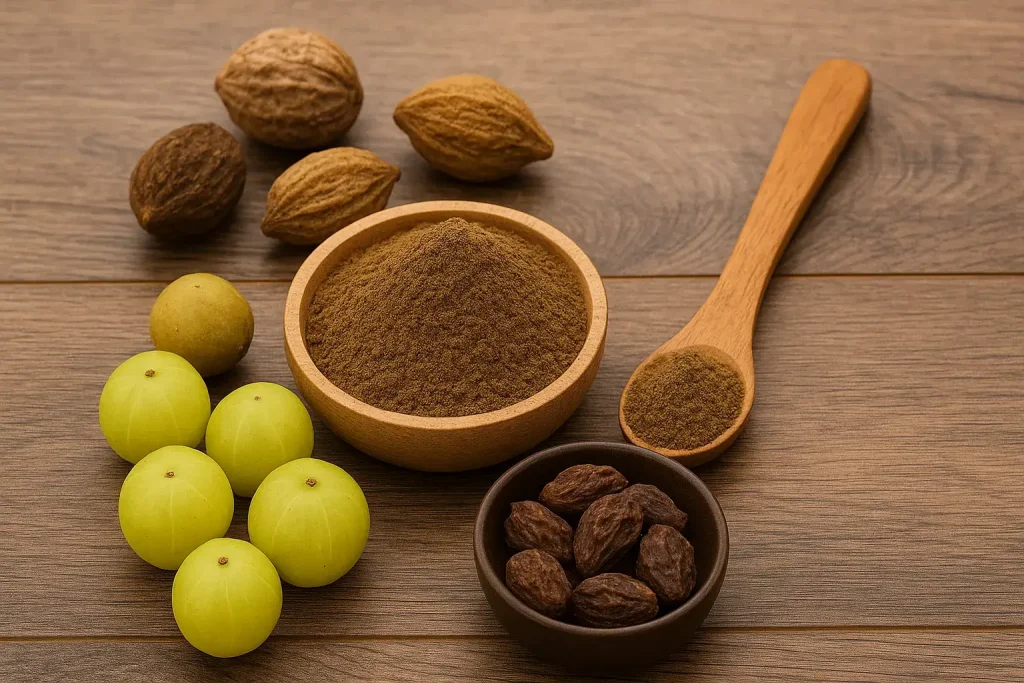
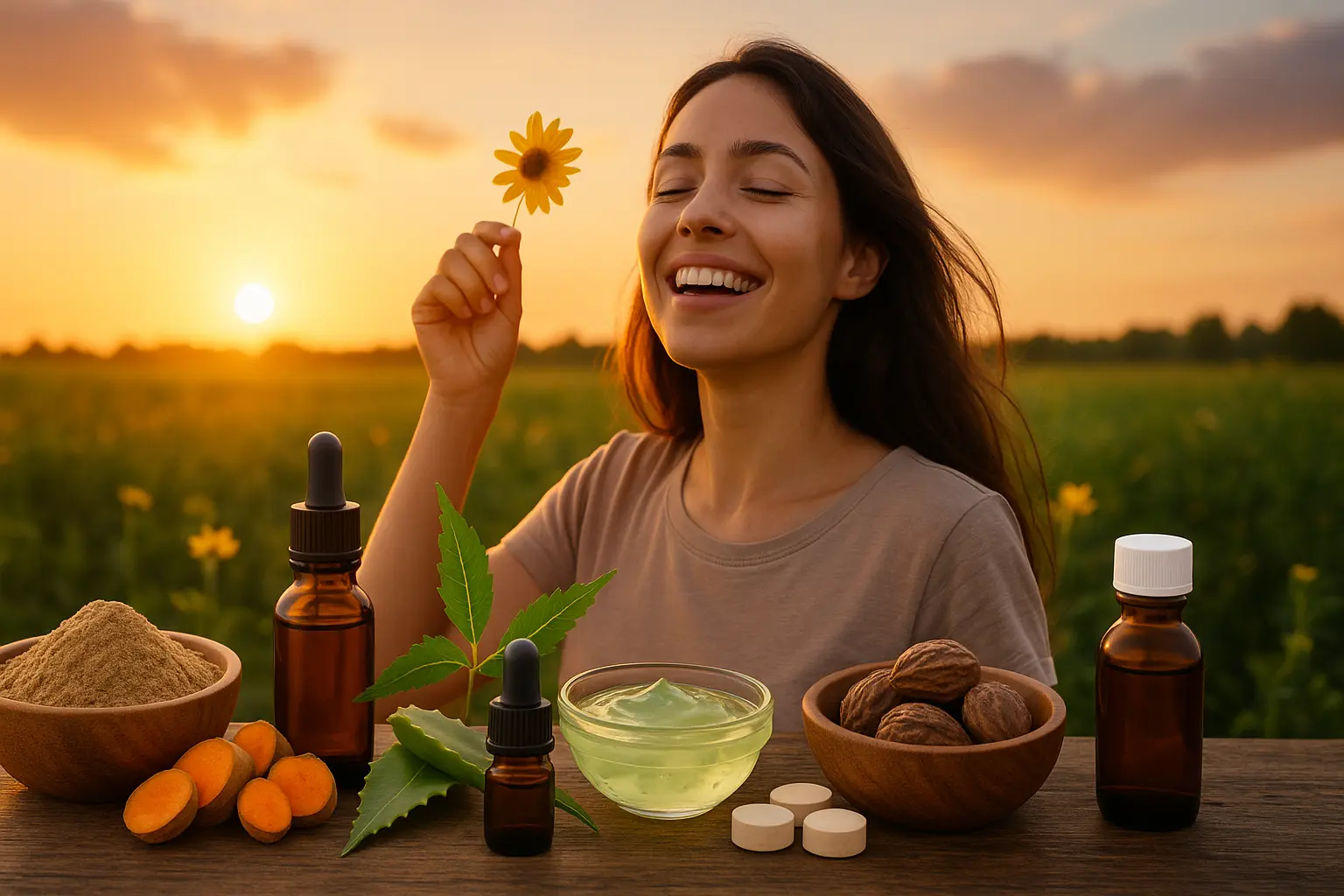
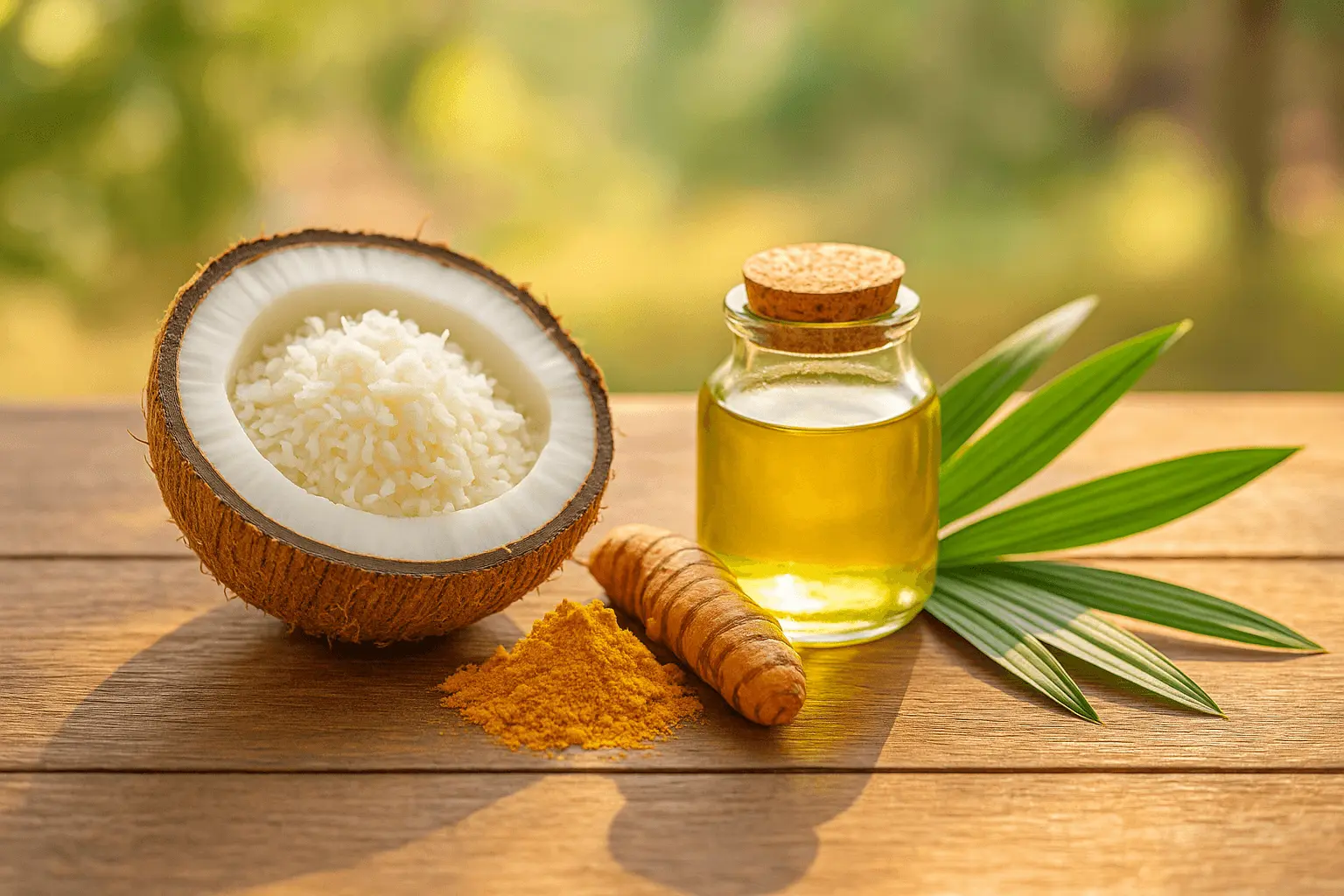
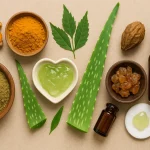
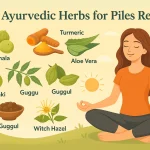
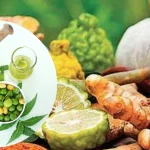
frenify
I really enjoyed reading this. The content is informative, and the layout makes it so easy to follow. Looking forward to more posts like this! Keep up the great work!
frenify
Thank you for your kind words! We’re glad you enjoyed the post. Stay tuned for more content – we’ve got plenty more coming your way.